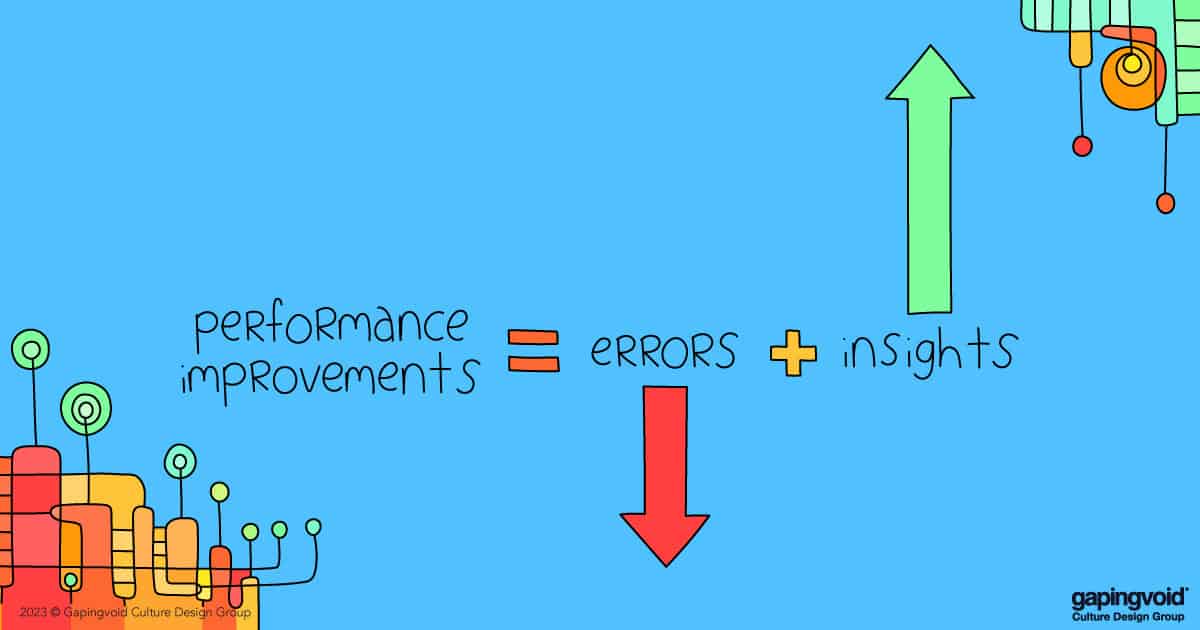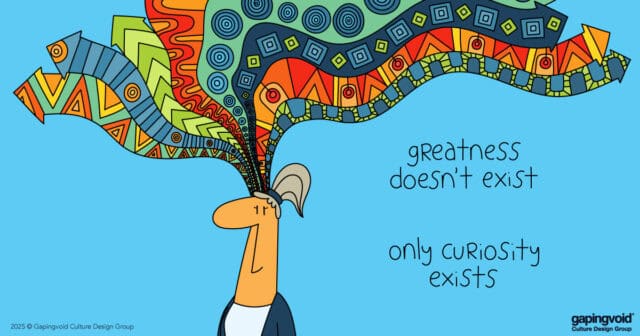
The image above is a redraw of a slide the research psychologist, Gary Klein, once showed to an audience.
Basically, a company that wants to get better at what it does, needs to (1) make fewer mistakes, and (2) have more valuable insights.
Klein said that most of the people in the audience who saw this slide said their employer was far more concerned with (1) than they were (2).
Which makes sense. Nobody wants to get fired for making a mistake, plus it’s often hard to get recognized for insights, especially when it requires sticking one’s head above the parapet. This is especially true in a toxic culture.
People were really interested in the slide, and continued asking Klein about it, especially the “insight” part.
Where do insights come from? How does one come up with more insights? Is there a best practice or something?
This influenced Klein to begin studying the problem. He writes about his journey in a lovely 2013 book, “Seeing What Others Don’t: The Remarkable Ways We Gain Insights.”
Gary hoped he would find THE ONE ANSWER as to where insights come from. In the end, he failed. He found three.
- CREATIVE DESPERATION (When you’re desperate for an idea, you start looking inward, seeing if there’s some assumption limiting your thinking, a belief or an assumption that you can discard). For example, Christopher Columbus getting rid of the assumption that you HAVE to sail Eastwards to reach the East Indies.
- CONNECTIONS (When you look for patterns, trying to figure out how things fit together. Klein mentions that on his voyage around the world on HMS Beagle, Charles Darwin wondered what the connection was between all these different species he studied having so many adaptations, connecting it all with the “Survival of the Fittest” idea, ie the Theory of Evolution.
- CONTRADICTIONS (When you see a pattern that doesn’t quite fit together). Klein tells the story of a cop who spotted a guy driving a brand-new BMW, smoking a cigarette, ashing inside his car. No owner of a new BMW would ever do that, nor would a friend who borrowed the car. But a person who just stole the car would. They pulled over the car, ran the license plates, and Voila! The car had been reported stolen.
These are all great insights on where insights come from. But all the insider knowledge in the world won’t help you without the right mindset i.e. a mindset of curiosity. A mindset that has a genuine interest in the world around you and in the way things work.
And even if you do have all of the curiosity in the world, it’s for naught if you work for a company whose culture doesn’t value it, who just wants you to keep your head down, regardless of how your brain is wired. Curiosity certainly can’t thrive in a culture of fear.
[PS: For those of you who don’t like reading books, Klein has a nice TED Talk from 2015]



